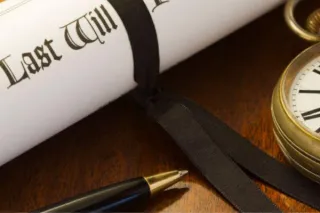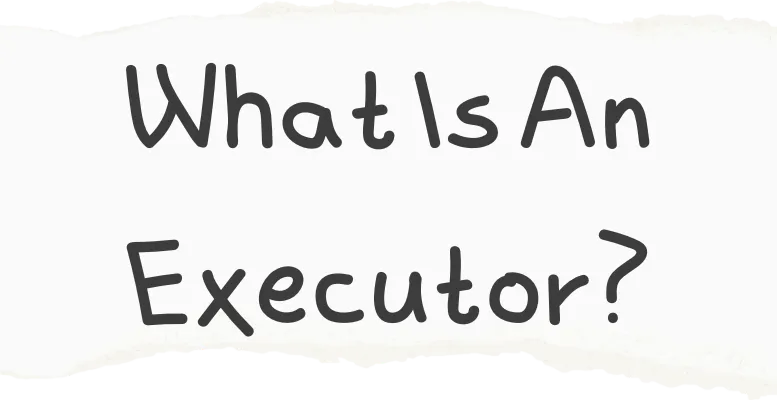Services
Get your Wills, Lasting Power of Attorney and Estate in Trust well before you need it.
The best time to sort out your "paperwork" is before it is needed
Don't leave your wishes to strangers to decide

Wills
Secure your legacy with a tailored will that reflects your wishes and safeguards your assets.

Probate
Navigate the complexities of probate with expert guidance, ensuring a smooth estate administration.

Estate Trusts
Safeguard your legacy, protect assets, and ensure financial security for loved ones with our expert trust services.

Lasting Power Of Attorney
Empower your trusted representatives to make decisions on your behalf when it matters most.
Don't Wait for a Crisis:
Proactive planning is key to avoiding unnecessary stress and complications in the future. By addressing your estate planning, wills, probate, and lasting power of attorney needs ahead of time, you can secure your legacy and protect your loved ones.
Waiting for a crisis to strike often leads to hasty decisions and costly mistakes. Instead, invest in peace of mind by establishing clear directives and empowering your trusted representatives to act on your behalf when necessary. Our team at RedLake is here to guide you through the process, providing expert advice and tailored solutions to help you take control of your future.

Protect Your Family's Future
Get a Head Start on Will, Power of Attorney, and Trusts
60% of Peolpe
Die Intestate (Without a Will)
That is 31 Million people who are leaving a problem for family behind them.
£6.1 bn paid in Tax
Inheritance Tax
The vast majority of Inheritance Tax is due becasue of a property. This can be reduced to zero with appropriate Estate Trust
Probate is 4x
Lack of a Will delays Probate
On average it take 4 times longer to pass probate (access the money) if there is no will.

Committed to Helping Our Clients Succeed
Lorem ipsum dolor sit amet, consectetur adipiscing elit. In convallis turpis efficitur enim efficitur pulvinar.

Aenean auctor hendrerit
Nunc porttitor, diam ut euismod commodo, urna augue dictum lectus in consectetur purus.

Aenean auctor hendrerit
Nunc porttitor, diam ut euismod commodo, urna augue dictum lectus in consectetur purus.
FAQ
Who Can Make A Will?
Generally, individuals can create a will if they are at least 18 years old and possess testamentary capacity. While there are a few exceptions to the minimum age requirement in exceptional situations, the standard rule is that the ability to create a will – similar to the ability to own property – commences once an individual attains the age of majority, which is 18.

Can children inherit property?
In the United Kingdom, children can inherit property, which is often placed into an estate trust that they can access at a later stage in their lives.

Beneficiaries - Who can Benefit from Your Will?
In England and Wales, you enjoy near-total liberty to bequeath your estate to whomever you desire. After all, it's your property! To determine the beneficiaries of your estate, create a will and explicitly state your wishes. If you don't, the law intervenes and dictates the distribution of your assets.

Read our Latest Blog Posts
Will Writing, Lasting Power of Attorney, Probate & Estate Planning

What Is An Executor?
Understanding Executors: What You Need to Know.
When it comes to estate planning and wills, the role of an executor is crucial. Whether you find yourself appointed as an executor or are considering whom to choose for your own will, it's important to understand the responsibilities and considerations involved. In this blog post, we'll provide you with a comprehensive overview of what an executor is and address common questions surrounding this vital role.
What is an Executor?
An executor is an individual designated in a will to manage and settle the estate of the deceased person. The estate encompasses all their possessions, properties, and finances. Acting as the legal representative, the executor carries out various tasks to ensure the orderly distribution of assets and fulfilment of the deceased person's wishes.
Choosing Executors for Your Will
When creating a will, selecting the right executor(s) requires careful thought. Since the role involves significant work and responsibility, it's essential to choose someone you trust implicitly and who is willing to carry out the necessary duties. Ideally, you should discuss the responsibilities with your chosen executor(s) beforehand to ensure their willingness to fulfil the role.
Who Can Be an Executor?
Executors can be friends, family members, or individuals close to you. They don't have to be related to you, but it's important to consider their ability to handle the responsibilities associated with the role. Additionally, those chosen as executors may also be beneficiaries of your will.
Appointing Multiple Executors
To distribute the responsibility and provide a backup in case one executor is unable to fulfill their duties, it is recommended to appoint at least two executors. Having multiple executors can help ensure that the process proceeds smoothly and efficiently.
Professional Executors
In situations where you lack suitable candidates or have a complex estate, you may choose to appoint a professional executor, such as a solicitor or an accountant. Professional executors have experience in handling intricate estates and can provide valuable expertise. It's important to note that professional executors charge fees for their services, which will be deducted from your estate.
Understanding Executor Responsibilities
If you find yourself appointed as an executor, you will have various responsibilities to fulfill:
Securing the deceased person's property promptly after their passing.
Collecting all assets, including money and property, belonging to the estate.
Settling any outstanding taxes and debts using funds from the estate.
Distributing the estate's assets to the beneficiaries named in the will.
Applying for Probate
Probate is the legal process that grants the executor the authority to handle the deceased person's estate. To apply for probate, you will need to complete specific forms, including form PA1 and the relevant Inheritance Tax form. These forms, along with supporting documents, should be submitted to the local probate registry, accompanied by the appropriate fee.
Dealing with Inheritance Tax
Inheritance Tax may be applicable if the value of the estate exceeds a certain threshold. It is essential to obtain a professional valuation for significant assets like properties or investments and provide detailed information to HM Revenue and Customs (HMRC).
Distributing the Estate
Distributing the estate to the beneficiaries is one of the final steps of the executor's role. This includes honoring any specific bequests mentioned in the will and preparing estate accounts for each beneficiary. It's crucial to keep detailed records of all transactions and activities related to the estate to address any future inquiries.
Need Assistance?
Whether you've been elected as an executor or are in the process of selecting your own executors, it can be an overwhelming experience.
So if you need assistance with any or all of the above mentioned points, we're more than happy to help. Simply get in touch or schedule a consultation call with us HERE and we'll help you through the process.


